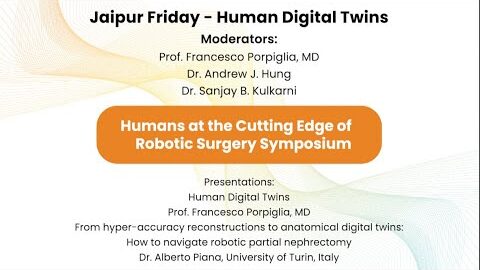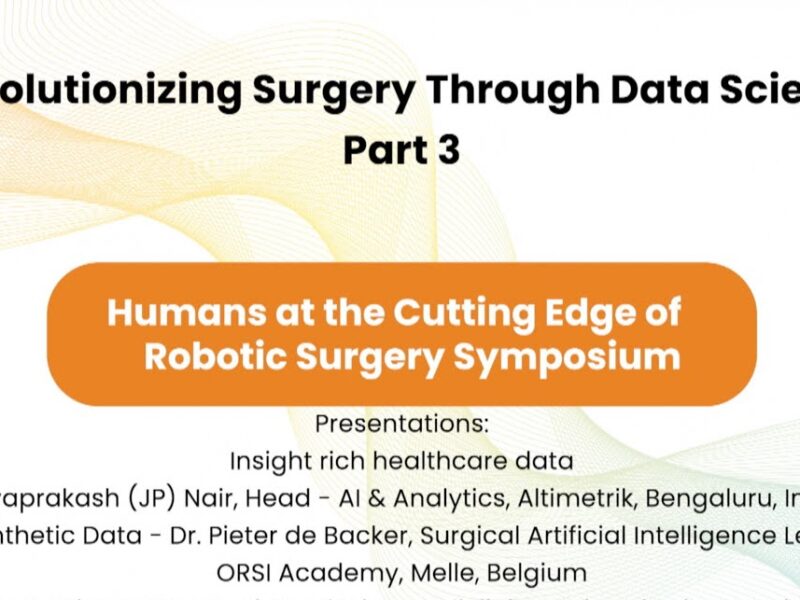#195 METAVERSE SURGICAL PLANNING FOR ROBOTIC PARTIAL NEPHRECTOMY: A PRELIMINARY EXPERIENCE Checcucci
This is one of the 2023 KS International Innovation Awards videos selected for inclusion in the Vattikuti Foundation – ORSI Humans on the Cutting Edge of Robotic Surgery Conference, October 6, 7 & 8, 2023 in Ghent, Belgium. Posting does not imply that is has been selected as a Finalist, just that the content will be discussed at the Conference.
From the entry: Dr. Enrico Checcucci
Abstract: METAVERSE SURGICAL PLANNING FOR ROBOTIC PARTIAL NEPHRECTOMY: A PRELIMINARY EXPERIENCE E. Checcucci, D. Amparore, G. Volpi, S. De Cillis, P. Alessio, F. Piramide, A. Piana, M. Sica, A. Quarà C. Gatti, G. Busacca, M. Colombo, C. Fiori, F. Porpiglia
Background: the Metaverse was defined as a virtual reality environment shared through the internet in which people are represented by their avatar. Trying to explore the potentialities of metaverse for the urological community we opted to explore this new tool for the surgical planning of robotic partial nephrectomy.
Materials and Methods: In March 2023, dedicated 3D models reconstructions with specifically built presets where created for kidney cancer patients candidate for robot-assisted partial nephrectomy (RAPN). 4 presets were created: (1) showed the different perfusion areas; (2) the arterial branches irrorating the tumour were highlighted (3); the simulation of the clamping strategy was done (4); the resection bed was shown. These 3D models made by Medics3D in .glb format were uploaded on a specifically developed platform by Anothereality for MetaQuest Visors. The models were visualized in a virtual reality enviroment by two surgeons preoperatively. Then RAPNs were performed according to the presurgical planning. Health-ITUES Questionnaire was administered to the surgeons.
Results: After 3D surgical planning into the metaverse, 5 patients underwent RAPN. In all the cases the selective clamping strategy planned was reproduced intraoperatively. No perioperative adverse events were registered. At Health-ITUES questionnaire, great appreciation was expressed by the surgeon with a median score of 4 points (IQR: 4-5
Conclusions: even if it is in an experimental phase, the metaverse experience seems to have a great potential for surgical planning and preoperative clinical case discussion. In the next future surgical simulation and training should be explored.
See more at: https://vattikutifoundation.com/videos/
Date
August 15, 2020






